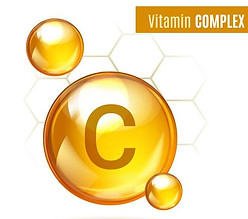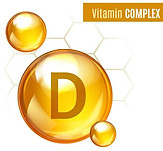
Vitamin Injections
Used to Treat:

VITAMIN C
Benefits of Vitamin C Injections
-
Absorbed better than oral supplements.
-
Reduces fatigue.
-
Improves the look and quality of the skin.
-
More gentle on sensitive stomachs.
-
Boosts the immune system.
-
Gives you more energy.
Vitamin C is a powerful natural antioxidant and helps to protect the body. It is vital for healthy skin, blood vessels, bones, and cartilage. It also promotes and aids in healing.
Not getting enough Vitamin C can leave you feeling sluggish, run-down, prone to frequent bouts of illness, and looking tired.
Injecting Vitamin C delivers the perfect amount of this vital vitamin directly, leaving you feeling and looking fantastic. Because the injections are delivered directly into the bloodstream, they are perfect for those with sensitive stomachs, as oral supplements can irritate the stomach. The body only absorbs 15% of an oral supplement, whereas it can take in much more when it is delivered via IM or IV.
Vitamin C has a positive impact on skin pigmentation, free radicals, resistance to allergies and some health conditions.
Our trained nurses will deliver your injection here at our Doncaster clinic.
Benefits of Vitamin C Injections
-
Absorbed better than oral supplements
-
Reduces fatigue
-
Improves the look and quality of the skin
-
More gentle on sensitive stomachs
-
Boosts the immune system
-
Gives you more energy



Treatment Areas Explained

VITAMIN B12
Vitamin B12, or cobalamin, is part of the group of so-called water-soluble vitamins, those that cannot be accumulated in the body, and which must be regularly consumed through food.
Vitamin B12 plays an essential role in red blood cell production and bone marrow formation. It is also involved in the metabolism of amino acids, nucleic acids - like folic acid, it assists in the synthesis of DNA and RNA - and in fatty acids.
Vitamin B12 requirements
Having a deficiency of vitamin B12 is a very common disorder, especially among people subject to alterations in the acidity of the digestive tract, in those who frequently undergo antibiotic treatments and who follow a vegetarian or vegan diet.
To make up for this lack, vitamin B12 injections are often used. It is a therapy capable of remedying all the symptoms related to the deficiency of this nutrient, which include weakness, bad mood and difficulty concentrating.
Cases of severe deficiencies, on the other hand, can interfere with the formation of red blood cells and raise homocysteine levels, which can cause negative effects on neurological and cardiovascular health.
Several foods provide a good dose of B12, but some people have a diet that does not allow them to ingest all foods or have difficulty absorbing this nutrient, generally due to metabolic changes.
In these cases, vitamin B12 injections provide the right help.
What are Vitamin B12 injections?
Injections of B12 help to rapidly increase the levels of this substance in our body. Vitamin B12 is required for the proper performance of many vital metabolic and hormonal functions, including the production of enzymes essential for digestion and transporting nutrients in and out of cells.
Symptoms of Vitamin B12 Deficiency
Indicative signs and symptoms of a B12 deficiency include:
Chronic fatigue and weakness
Pain in muscles and joints combined with difficulty in carrying out physical exercises
Poor memory and difficulty concentrating
Depression, anxiety or other signs of nervousness such as palpitations and tachycardia
Oral cavity problems, including gum bleeding
Feeling short of breath
Constipation, nausea, diarrhoea or stomach cramps.
Benefits of Vitamin B12 Injections
They reduce depression and cognitive decline: Some scientific studies have shown that, especially with advancing age, supplementing with vitamin B12 can prevent depression and keep the vital functions of the brain active.
They manage muscle weakness: Getting vitamin B12 to the right levels can effectively treat anaemia, aid in the conversion of macronutrients and in the production of creatine, one of the building blocks of muscle mass. In this way, chronic fatigue and weakness in muscle tone can be managed.
They improve metabolism: Some people resort to vitamin B12 injections to counteract a slow metabolism and manage weight gain. Since this therapy can give patients more energy and regulate hormone production, after treatment it is possible to experience changes in appetite, increased sleep quality and improved athletic performance.
They protect the heart: Elevated levels of homocysteine in the blood are a risk to cardiovascular health. Vitamin B12 is necessary for its conversion and, therefore, for the prevention of heart disease.



VITAMIN D
We don’t make enough vitamin D for our needs here in the West. In fact, it is thought that around 20% of the UK population is deficient in vitamin D.
The Scientific Advisory Committee on Nutrition (SACN)advises that everyone in the UK should supplement daily with 10 micrograms of vitamin D between October and March, with minority ethnic groups encouraged to supplement throughout the whole year.
Vitamin D ingested orally can take weeks, even months, to have an impact on your health – and much of the dose is lost when it is converted in the gut. However, intramuscular vitamin D injections have a much more immediate impact – some patients report feeling the effects right away. And because the vitamins are administered directly into the muscle, bypassing the gut, a much higher percentage of the vitamins can be utilised by the body.
So, what does taking vitamin D do?
-
Maintains bone density and bone health
-
Supports the immune system
-
Regulates the activity of more than 200 different genes
-
Aids the absorption of calcium and phosphate in the body (these are essential for muscles, teeth, and bones)
-
Helps prevent osteoporosis
-
Reduces inflammation
-
Protects against heart disease
-
Supports brain function
-
Modulates cell growth
-
May help protect against respiratory infections
-
May alleviate symptoms of arthritis (research is ongoing but shows promising results)
Vitamin D is a fat-soluble vitamin, which means you need fewer treatments and it remains active longer. Only 1 injection is needed every 3 months.




